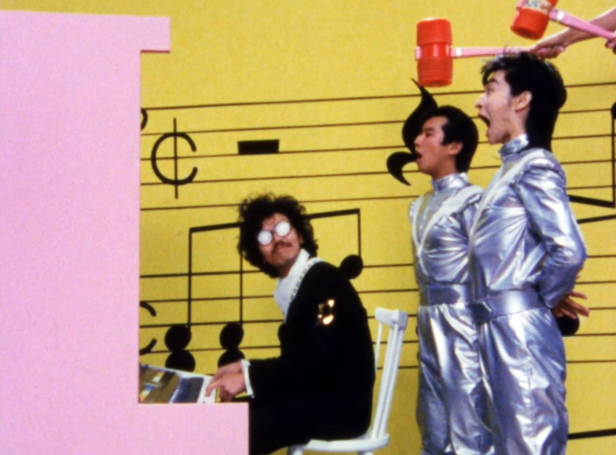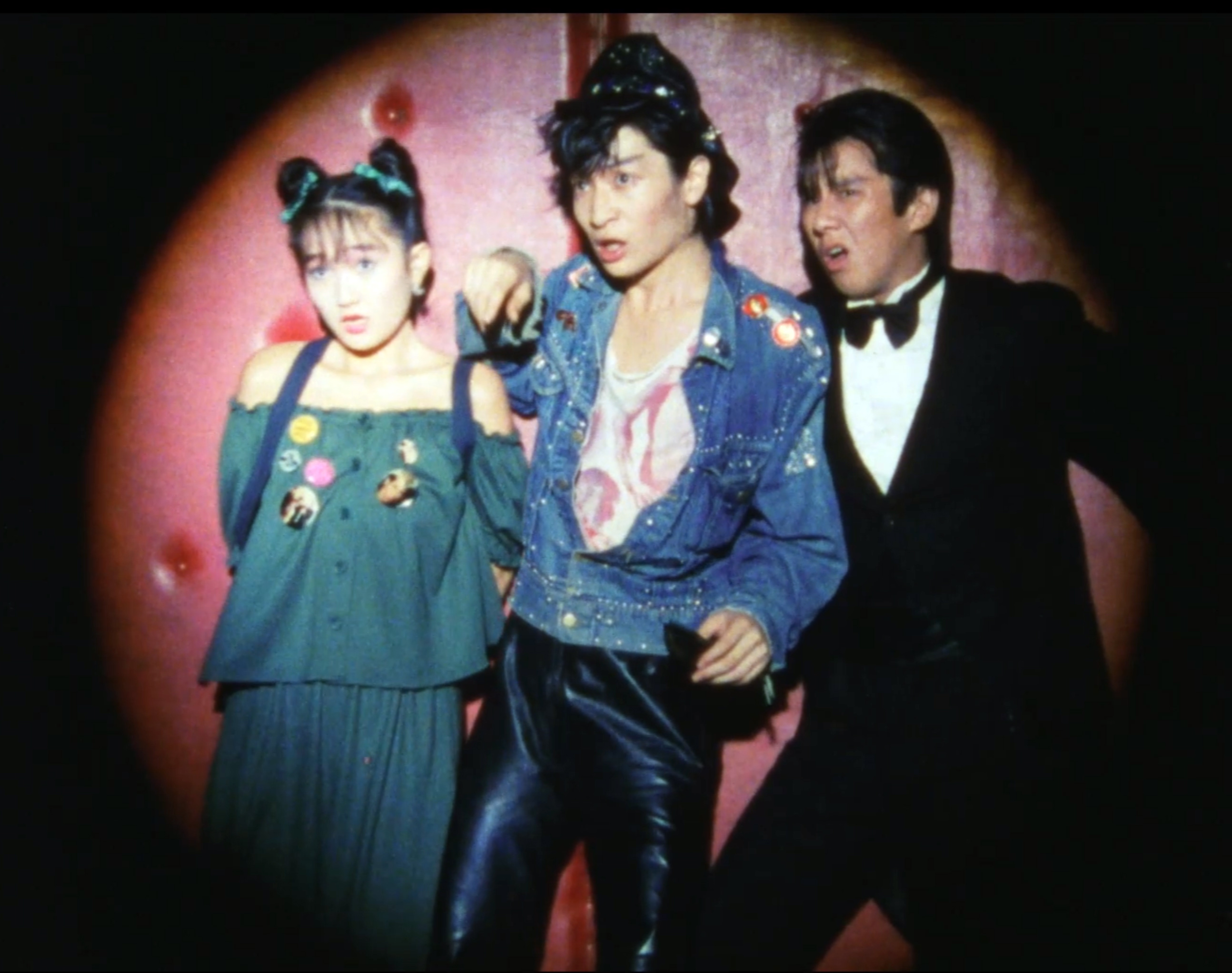Some backstory first: the legend behind The Legend, if you will. In the early ‘80s, Macoto Tezka, the son of “godfather of manga” Osamu Tezuka (Astro Boy), was a film student with few credits to his name beyond some experimental shorts. In 1985, at age 22, he met musician and TV personality Haruo Chicada, who had composed a soundtrack for a movie that didn’t actually exist yet: The Legend Of The Stardust Brothers.
Chicada used his clout to get an adaptation of his fake soundtrack made into a feature-length musical, with Tezka directing. The budget was sizeable and some of Japan’s most famous musicians of the time were on board, while various prominent names in manga were among the assembled crew; Kiyoshi Kurosawa, a director who would become much famous later for films like Pulse and Cure, even has a supporting role as an actor.
The resulting madcap musical, a comedic portrait of the rise and fall of a manufactured pop duo, has basically been buried until now and was never released outside of Japan, where its cult following, due to availability, is still very small. The film has now been lovingly restored with a new director’s cut for the whole world to see.
But is the film itself actually of note outside of its interesting backstory? Full disclosure: we can’t vouch for whether the 1985 cut was radically different. But in this restored form, The Legend Of The Stardust Brothers is a consistent surge of unpredictable and incoherent creativity and hilarity. Incoherent is meant as a compliment here. The film is its own wild beast, often diving into genre territory with little prior narrative precedent, but one way to set up the tone would be to say it plays like someone in Japan tried to localise The Young Ones, The Monkees and Brian De Palma’s Phantom Of The Paradise into the same project.
The pop/rock numbers are infectious and uproarious, the performances energetic, and the costumes and abnormal set design a consistent treat. It deserves Rocky Horror-level success.

